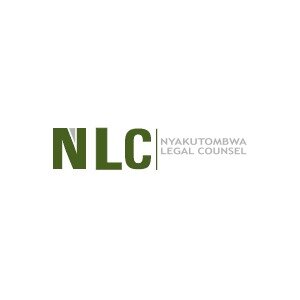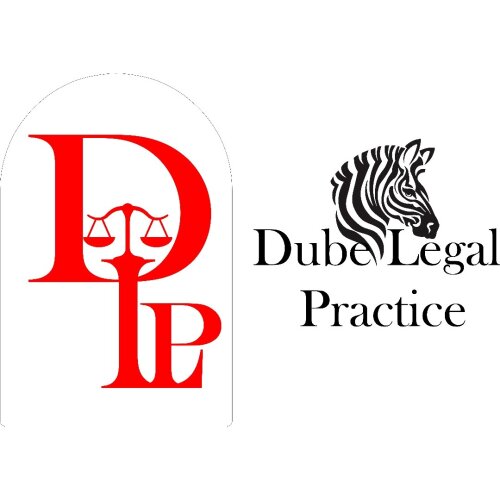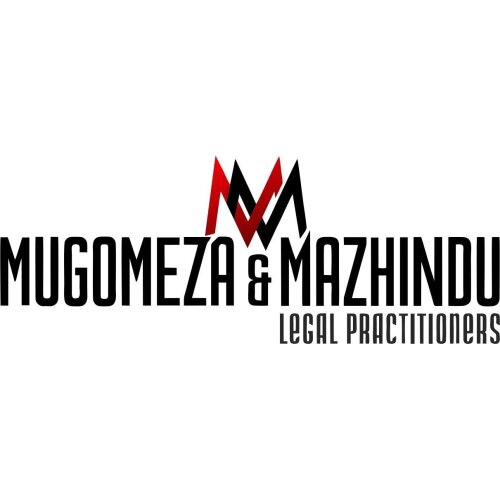Best Oil, Gas & Energy Lawyers in Zimbabwe
Share your needs with us, get contacted by law firms.
Free. Takes 2 min.
Or refine your search by selecting a city:
List of the best lawyers in Zimbabwe
About Oil, Gas & Energy Law in Zimbabwe
Oil, Gas, and Energy law in Zimbabwe is a dynamic field, primarily focused on regulation, exploration, production, and environmental considerations. While Zimbabwe is not traditionally known as a massive player in the oil and gas industry, recent exploration activities have generated interest. The country also focuses heavily on energy policy, especially in renewable sources like solar, due to the national push towards sustainable energy solutions. Underlying these efforts are the legal frameworks which provide the foundation for operations, investment, and environmental protection, playing a crucial role in shaping the industry's future in Zimbabwe.
Why You May Need a Lawyer
Engaging legal counsel in the Oil, Gas, and Energy sector in Zimbabwe is often necessary for several reasons:
- Contract Negotiation and Drafting: Entering into exploration or production agreements requires legally sound contracts to ensure all parties' rights and responsibilities are clearly defined.
- Regulatory Compliance: Understanding and complying with Zimbabwe's complex regulatory environment, including licensing, permits, and environmental laws, is crucial.
- Dispute Resolution: In cases of disputes, whether with governmental bodies, communities, or between companies, a lawyer's assistance is vital to protect interests.
- Investment and Finance: Legal advice can help navigate foreign investment laws, joint ventures, and financial agreements crucial for funding large-scale projects.
Local Laws Overview
Zimbabwe's legal landscape in Oil, Gas, and Energy is shaped by several key statutes and regulations:
- The Mines and Minerals Act: Governs the licensing and rights concerning mineral resources, including hydrocarbons.
- The Environmental Management Act: Sets out environmental policies applicable to energy projects, emphasizing sustainable practices.
- The Petroleum Act: Provides for the regulation of the downstream petroleum sector, including storage, distribution, and sale of petroleum products.
- Renewable Energy Policy: This outlined framework aims to increase the share of renewable energy in Zimbabwe's energy mix with specific goals and incentives.
Frequently Asked Questions
What permits do I need to explore for oil and gas in Zimbabwe?
Exploring for oil and gas typically requires an exploration license, which can be obtained by applying to the Ministry of Mines and Mining Development. This involves compliance with regulatory requirements and environmental assessments.
Is foreign investment allowed in Zimbabwe's energy sector?
Yes, foreign investment is encouraged. However, investors must comply with specific regulations such as the Indigenization and Economic Empowerment Act, which sets certain conditions on ownership and investment.
Are there incentives for renewable energy projects?
Zimbabwe offers incentives for renewable energy projects, including tax reductions, financial grants, and favorable tariffs to encourage the development of cleaner energy sources.
How are oil and gas contracts typically structured in Zimbabwe?
Contracts in this sector often take the form of Production Sharing Agreements (PSA) or joint venture arrangements that outline the roles, responsibilities, revenue shares, and operational guidelines for all parties involved.
What are the environmental regulations concerning oil and gas activities?
Activities must comply with the Environmental Management Act, which requires Environmental Impact Assessments (EIAs) for projects to ensure sustainable practices and protection of the environment.
Can energy projects impact local communities, and how is this handled?
Yes, projects can affect local communities. Companies are required to engage in community consultation processes and may implement Corporate Social Responsibility (CSR) programs to address community concerns.
Who regulates the energy sector in Zimbabwe?
The Zimbabwe Energy Regulatory Authority (ZERA) regulates the sector, overseeing activities from licensing to compliance with national energy policies.
What role does the Zimbabwean government play in the energy sector?
The government sets policies, allocates exploration licenses, and may participate directly in projects through state-owned enterprises or partnerships.
How is land ownership handled concerning energy resources?
The government holds all mineral and energy resources in trust for the people of Zimbabwe. Companies must obtain appropriate licenses and negotiate access with private landowners if necessary.
What are the key challenges in the energy sector in Zimbabwe?
Challenges include infrastructure development, investment attraction, regulatory complexities, and the transition to renewable energy while balancing economic and environmental interests.
Additional Resources
For more information and assistance, consider the following resources:
- The Ministry of Mines and Mining Development: Oversees exploration and mining activities, including hydrocarbons.
- Zimbabwe Energy Regulatory Authority (ZERA): Provides guidelines, licenses, and information about the energy sector.
- Environmental Management Agency (EMA): Regulates environmental compliance and sustainability initiatives.
- Zimbabwe Investment and Development Agency (ZIDA): Aids in facilitating investment within the country.
Next Steps
If you need legal assistance in the Oil, Gas, and Energy sector, consider the following steps:
- Research and Identify: Identify the specific legal areas where you need assistance, such as contract negotiation or regulatory compliance.
- Engage a Specialist Lawyer: Seek out legal professionals or firms specialized in Oil, Gas, and Energy law in Zimbabwe to provide expert guidance.
- Prepare Documentation: Gather all relevant documents, contracts, and correspondence to facilitate a detailed review by your legal counsel.
- Consult Industry Experts: In addition to legal counsel, consulting with industry experts can provide a comprehensive understanding of the sector's operational and commercial aspects.
Lawzana helps you find the best lawyers and law firms in Zimbabwe through a curated and pre-screened list of qualified legal professionals. Our platform offers rankings and detailed profiles of attorneys and law firms, allowing you to compare based on practice areas, including Oil, Gas & Energy, experience, and client feedback.
Each profile includes a description of the firm's areas of practice, client reviews, team members and partners, year of establishment, spoken languages, office locations, contact information, social media presence, and any published articles or resources. Most firms on our platform speak English and are experienced in both local and international legal matters.
Get a quote from top-rated law firms in Zimbabwe — quickly, securely, and without unnecessary hassle.
Disclaimer:
The information provided on this page is for general informational purposes only and does not constitute legal advice. While we strive to ensure the accuracy and relevance of the content, legal information may change over time, and interpretations of the law can vary. You should always consult with a qualified legal professional for advice specific to your situation.
We disclaim all liability for actions taken or not taken based on the content of this page. If you believe any information is incorrect or outdated, please contact us, and we will review and update it where appropriate.
Browse oil, gas & energy law firms by city in Zimbabwe
Refine your search by selecting a city.
















